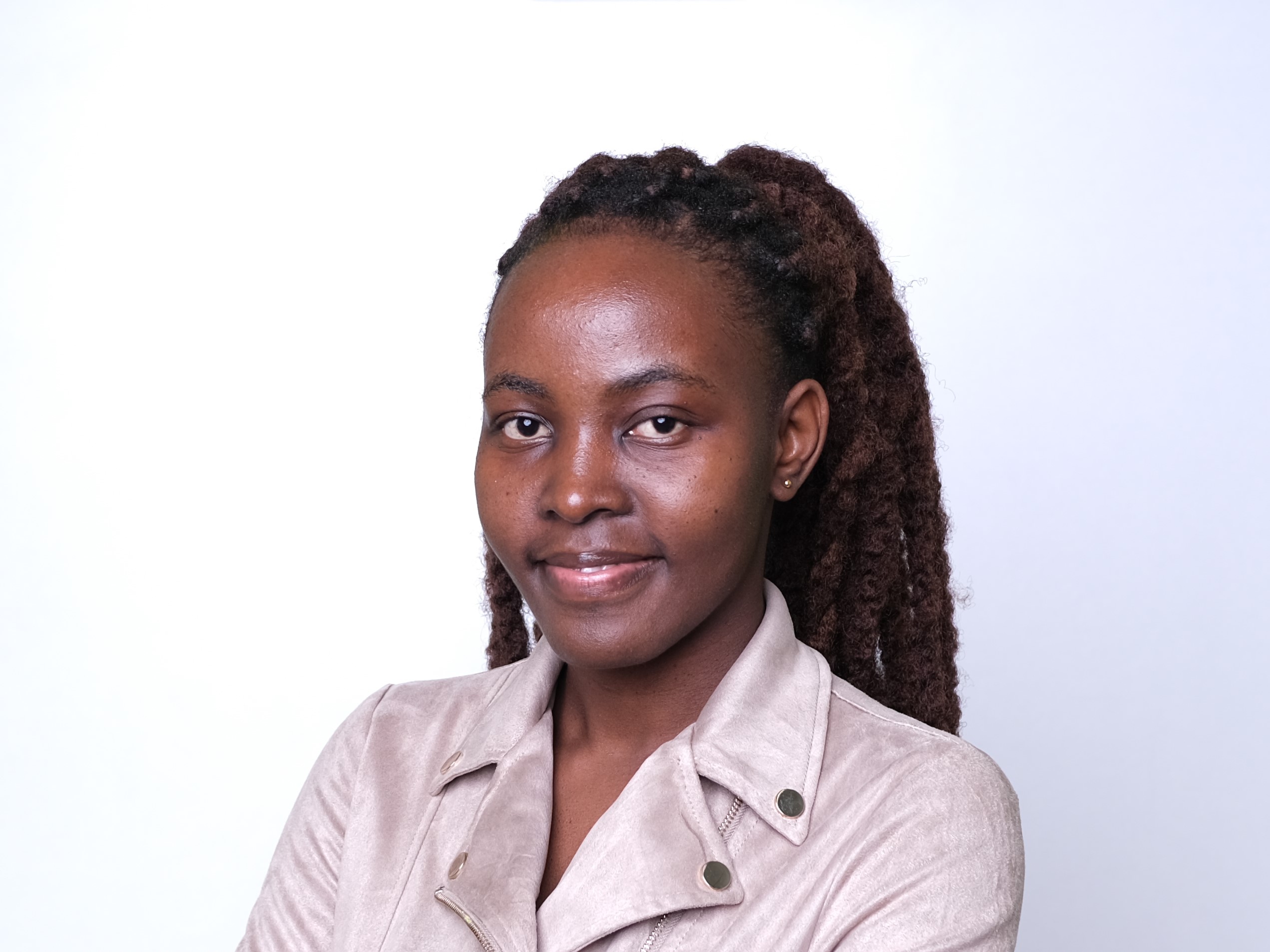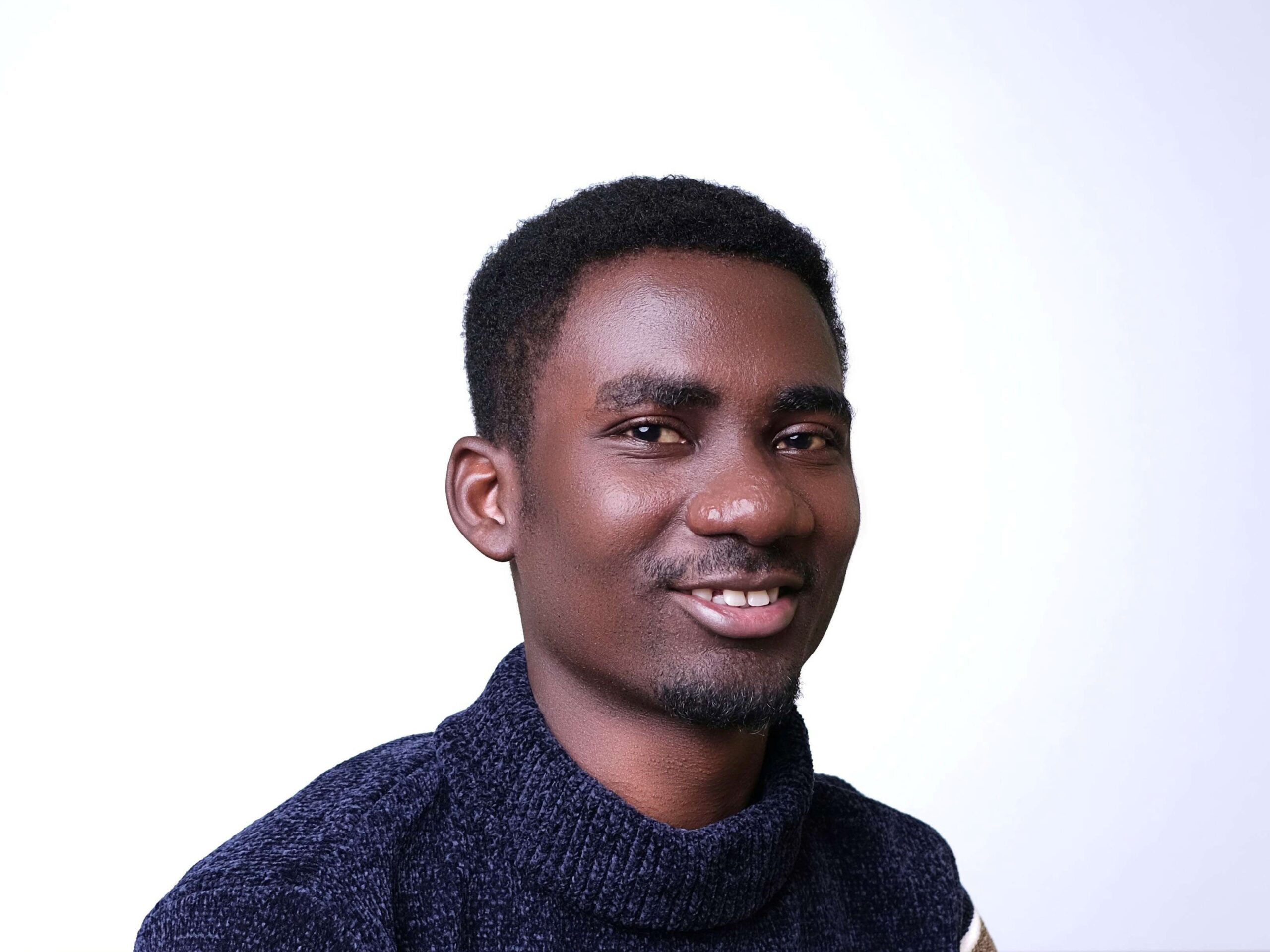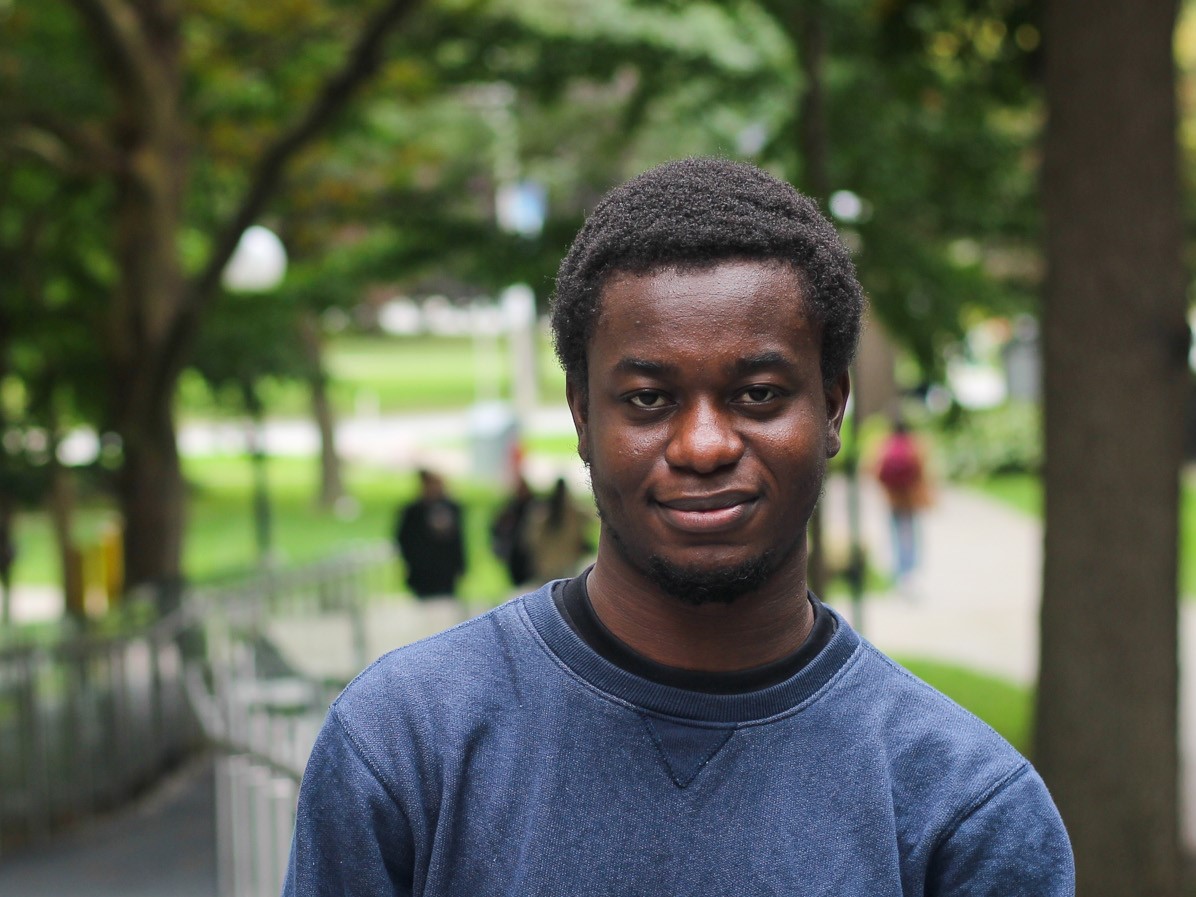Three students funded by the MasterCard Scholars program joined BME in 2022 to pursue their degree in Masters of Engineering. As a part of the MasterCard Foundation initiative, this Scholarship aims to further education, leadership, and skill development for young people from Africa, while working to address systemic barriers in higher education. We asked the MasterCard Scholars what they look forward to at the University of Toronto, and how they will advance their knowledge in the field of biomedical engineering.

Where are you from? How would you describe your hometown to someone who has not visited before?
My name is Isdora Bonaventure Msigwa, a Tanzanian by nationality. I am originally from Iringa town but I spent most of my lifetime in Dar Es Salaam.
Dar Es Salaam is the largest city and one of the major business towns in Tanzania. It is highly populated with an average population of about 6 million people, but living in one of the suburbs (Mbezi Louis) in its outskirts, I experienced less congestion. Mbezi Louis is a medium-populated town with large areas still occupied by green vegetation. In recent years, it has been developed to join major services in the city centre by both major tarmacked roads and community roads. Dar Es Salaam is a coastal area, a large part of the city is boarded by the Indian Ocean in the east. This gives Dar Es Salaam very cool weather for most of the year with many recreational activities going on at the seashores. Dar es salaam is generally a beautiful city to live in with a lot of cultural diversity.
What was your academic background?
I have always been an engineering enthusiast, therefore, I also pursued a bachelor’s degree in biomedical engineering for my undergraduate studies.
What does being a MasterCard Scholar mean to you?
From my perspective, and being a beneficiary of the MasterCard scholars’ Program for some years, I would say being a MasterCard Scholar is more than just a privilege to having access to a fully funded education. It is also an opportunity for growth and overall responsibility to create change in my community. As a scholar and an upcoming engineer, this scholarship will provide me with the skills to impact the changes I want to see in my community’s healthcare system.
What do you look forward to the most during your time at the University of Toronto?
The University of Toronto has a high population of diverse cultures and its values around learning highly resonate with mine. I look forward to an enriching cultural experience, and learning environment, to work on my dreams and aspirations as a biomedical engineer. It’s quite compelling how the significant areas of focus at the Institute of Biomedical Engineering, for instance, Entrepreneurship and Innovations, Tissue Engineering and Regenerative Medicine, align with my interests.
I am thrilled about this new experience as I take on new academic roles in graduate school. I intend to capitalize on opportunities to work on complex problems in the biomedical engineering field, network with a community of like-minded individuals, and interact with world-class faculty members. I look forward to working with the inspiring faculty members that are adding value to the field of biomedical engineering.
How will you use your knowledge in biomedical engineering to benefit your home country?
My primary goal is to apply knowledge and expertise attained in biomedical engineering towards improving the quality and accessibility of major healthcare needs and services in my community, Tanzania.

Where are you from? How would you describe your hometown to someone who has not visited before?
I grew up in Kojokrom, a small town located in the Western Region of Ghana. The Western Region is home to Ghana’s first president, His Excellency Dr. Kwame Nkrumah, and has crude oil in commercial quantities.
What was your academic background?
I hold a Bachelor of Science in Electrical and Electronics Engineering from Kwame Nkrumah University of Science and Technology (KNUST) and am glad to say that I am a proud alumnus of the Mastercard Foundation program at KNUST. I routinely ranked in the top 1% of my class during my undergraduate studies, earning me the renowned Provost’s Excellent Student Award for exceptional students each academic year. I graduated in 2021 as the second-best engineering student in the Engineering College and in the top 1% of students in the overall university. Upon completion of my undergraduate degree, I worked as a Teaching and Research Assistant in the College of Engineering at KNUST for a year.
Over the years, I have not only been academically exceptional but I have held numerous positions. In 2020, I served as the Electoral Commissioner for the MasterCard Foundation Scholars at KNUST, and I served as a member of the academic board for the Electrical Engineering students’ association.
What does being a MasterCard Scholar mean to you?
To me, being a Mastercard Scholar means being a transformative leader, who identifies problems, and coordinates people and resources to find innovative solutions to problems existing in society. I consider the MCF scholarship at the University of Toronto to be a perfect opportunity to be one of the young Africans who will drive a positive change in Africa. My decision to study Biomedical Engineering stemmed from my desire to make assistive technologies accessible to as many people as possible in my community to foster a happy, convenient and self-reliant life. At the University of Toronto, I will be pursuing a master’s in Biomedical Engineering with a focus on medical devices. I have a strong research interest in Brain-Machine Interfaces (BMI), Neural Circuits, Neuromodulation, and Artificial Intelligence.
What do you look forward to most during your time at the University of Toronto?
I am thrilled to be attending the University of Toronto and confident that the master’s degree will be a stepping stone toward achieving my personal and career goals. I am looking forward to carrying out scientific research on how neural circuits and BMIs can be utilized to address the health challenges in Africa. Also, I intend to join student clubs such as AIESEC Toronto, where I will hone my technical and leadership skills and experience the diversified culture. I look forward to collaborating with past and current MCF scholars on research and ideas to expand my influence beyond Ghana.
How will you use your knowledge in biomedical engineering to benefit your home country?
I am confident that the unique, practical, and comprehensive program at U of T will help me grow personally, academically, and professionally to be among the neurotech engineers. They will lead health change in Africa using technology. Inspired by my experiences growing up in Ghana, I aspire to build a biotech company to make assistive technologies affordable and accessible, improve healthcare delivery, and ensure inclusion in Ghana and Africa.

Where are you from? How would you describe your hometown to someone who has not visited before?
I am from Ghana which is located along the Gulf of Guinea and the Atlantic Ocean in West Africa. Ghana simply means “Warrior King” and its capital city is Accra. The official language used is English, and Akan is the most popularly used language in Ghana. Its official currency is the Ghana cedis and it has three bordering countries namely Togo, Burkina Faso and Côte d’Ivoire. There are several tribes back home with each tribe upholding different cultural orientations with varying lifestyles. The people of Ghana are generally hospitable to everyone and the majority of them are Christians.
What was your academic background?
I pursued Biological Sciences (Life Sciences) during my undergraduate studies with a vision geared toward improving healthcare delivery. I also loved studying technologies during my leisure time and knew that I would have to synchronize my passion for technological innovations, with my vision to improve healthcare delivery, to make the exact maximum positive impact that would benefit humans.
What does being a MasterCard Scholar mean to you?
Being a MasterCard Scholar means a lot to me. In brevity, it means that I am now blessed to have all the needed support and resources that I can harness as I pursue the MEng Biomedical Engineering program to help make my vision of improving healthcare delivery a reality. In addition, I must say this Fall is surely the time to synchronize my passion with my vision to start making the positive impact I wanted.
What do you look forward to most during your time at the University of Toronto?
I look forward to broadening my knowledge in Artificial Intelligence, Machine Learning, Deep Learning and Medical Technologies by learning a great deal from the renowned Professors at the University of Toronto so that I can save lives.
How will you use your knowledge in biomedical engineering to benefit your home country?
I am positive that my knowledge in Biomedical Engineering will help me to develop diverse innovative medical technologies which will be of great importance in diagnosing, monitoring and treating patients in my home country and outside my home country.
I conclude by saying, Lord thank you for bringing me this far and bless the MasterCard Foundation and make it great and strong.


